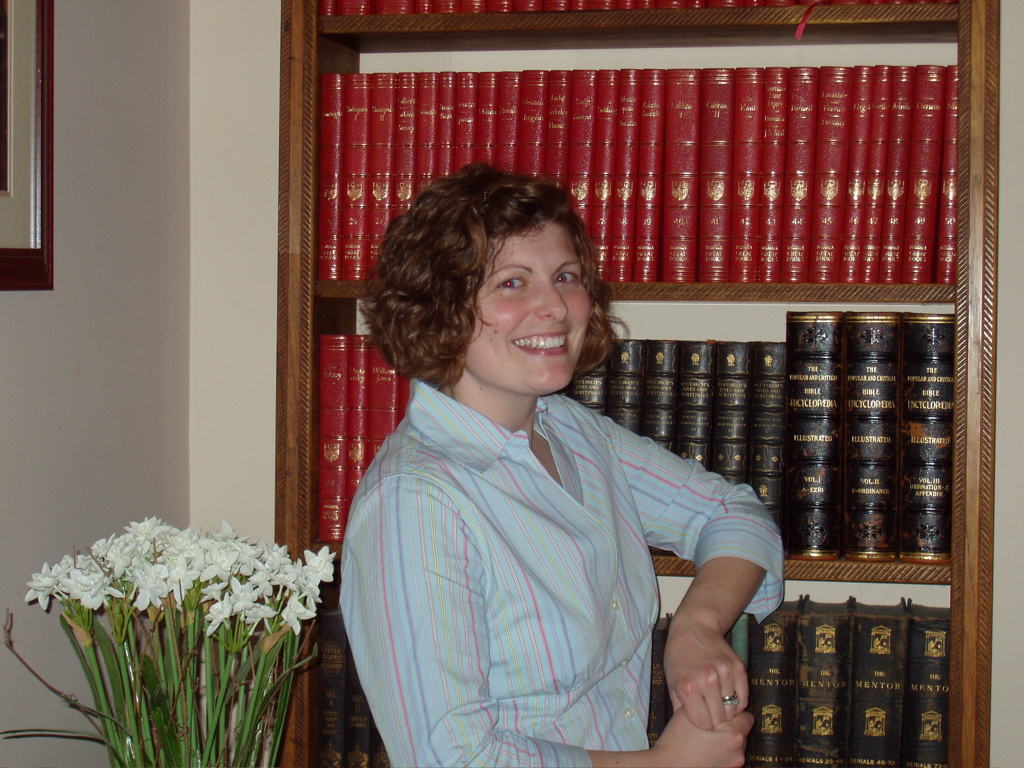There are those whose physical bodies are quite old, but their mind has not yet followed. My great-aunt for instance at the current age of 97, can hardly see or walk, but when I talk to her on the phone, it's hard to believe she's past 50. Great-grandma Hodges is no longer troubled with a youthful mind, and is thus the more interesting person.
I've noticed that she wears a blank pleasant expression at all times. Great-grandma will sit maybe 8 feet from my general person carrying on a monologue while I do various household chores. I've burned my hand, cut a finger, tripped over a basket of laundry nearly falling to my death or at least 2 months of traction- yet her flow of thought and conversation remains uninterrupted and her pleasant expression unchanged.
In the mind of the old, memories become repeat buttons triggered by things such as sitting down to dinner. "That reminds me of the time..." We all nod enthusiastically and pretend we aren't hearing the story for the hundredth time.
Old people think more deeply on simple things they didn't have time to muse on back when they had responsibilities and schedules. At Fernbank in the Great Hall, while I took care of handing out food and managed the general chaos of 7 people having lunch, great-grandma's mind and conversation was consumed by the Brachiasaurus skeleton positioned in all its immense glory before us. What did it eat? How long did it take to digest its meal? How many pounds of food would it consume in any given day? How far would it travel over the course of a life time? I'm not sure that I ever actually looked at the monstrosity beyond it being a general background to the larger scene of field trip chaos. But I responded with what I hoped was a sufficient acknowledgement. " Gee, Mormor (that is her name in the family) I never thought of that," then in a hiss," Oliver do not pinch Gabriel," back to Mormor, " Well I'd imagine they traveled far with legs that big," followed by " no more chips until your sandwich is gone, Gabriel," more in the fashion of ping-pong, than a conversation.
Old people have a very original method of dealing with personal complaints. Foremost in their mind is the desire to be no trouble. Thus, if the food is too salty, one story follows another about once in another time and world there was a salty meal. Or if they're parched, no beverage will be requested, but a long story comes forth, the moral of which is, 'I need a drink.' Rather than say the music is too loud, hands are silently held over ears.
The ultimate joy in being with someone whose mind has gone to a better place-well, there are two of them really-First, great-grandma decides after long hours of exposure that my children are truly perfect. Second, table manners officially become a thing of the past. Conversation continues around bites so big, a truck driver would be proud, while boulder size particles are shot across the table in a fashion reminiscent of bird shot scattering across the bullseye. I find myself covering food under the pretense of freshness, but really so I won't be utterly grossed out by the extra seasoning. Then it hits me, no pun intended, that we have an immediate and urgent need for a bigger table- a much bigger table so great-grandma will have plenty of elbow room on the other side.
